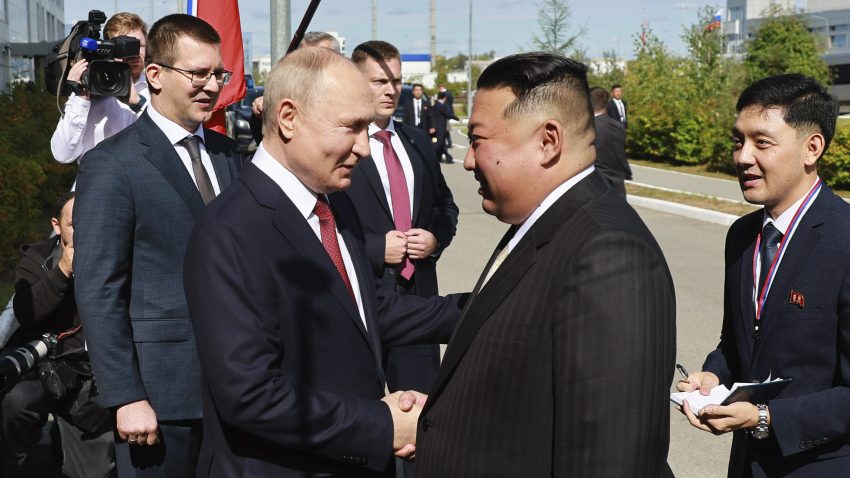Russian President Vladimir Putin has wrapped up a visit to Pyongyang, where he signed a new agreement with North Korean leader Kim Jong Un that includes a mutual defense clause “in the event of aggression against one of the parties.” The visit marks Putin’s second summit with Kim in less than a year. (The Guardian)
Our Take
Putin’s visit to North Korea, his first in 24 years, marks another step in the evolution of the bilateral relationship that began soon after Russia’s all-out invasion of Ukraine in February 2022. Still, it carries different significance for each side.
For Russia, Putin’s visit underscores the country’s greatest geopolitical weakness: diplomatic isolation. Since invading Ukraine, Russia has only been able to maintain substantive partnerships with a handful of states, and other than China, none of the others—Belarus, Iran and, of course, North Korea—have significant influence in the international order. That Russia, long one of the world’s leading arms exporters, has been forced to purchase artillery, but also missiles and drones, from the latter two further highlights how the war in Ukraine has affected its global standing.

